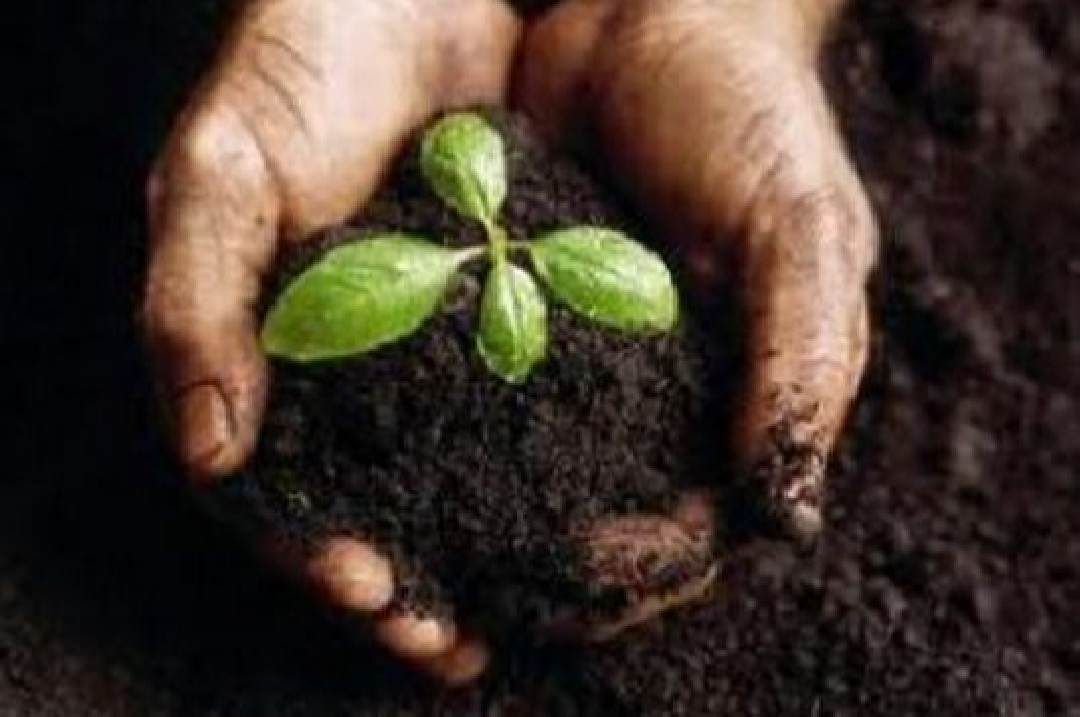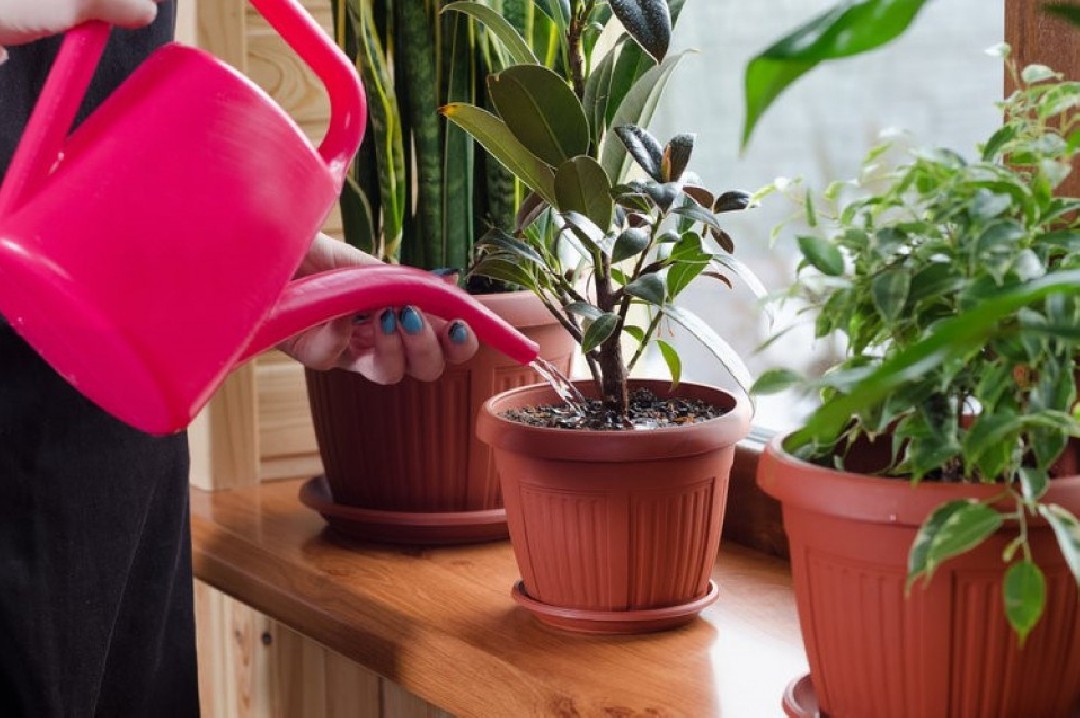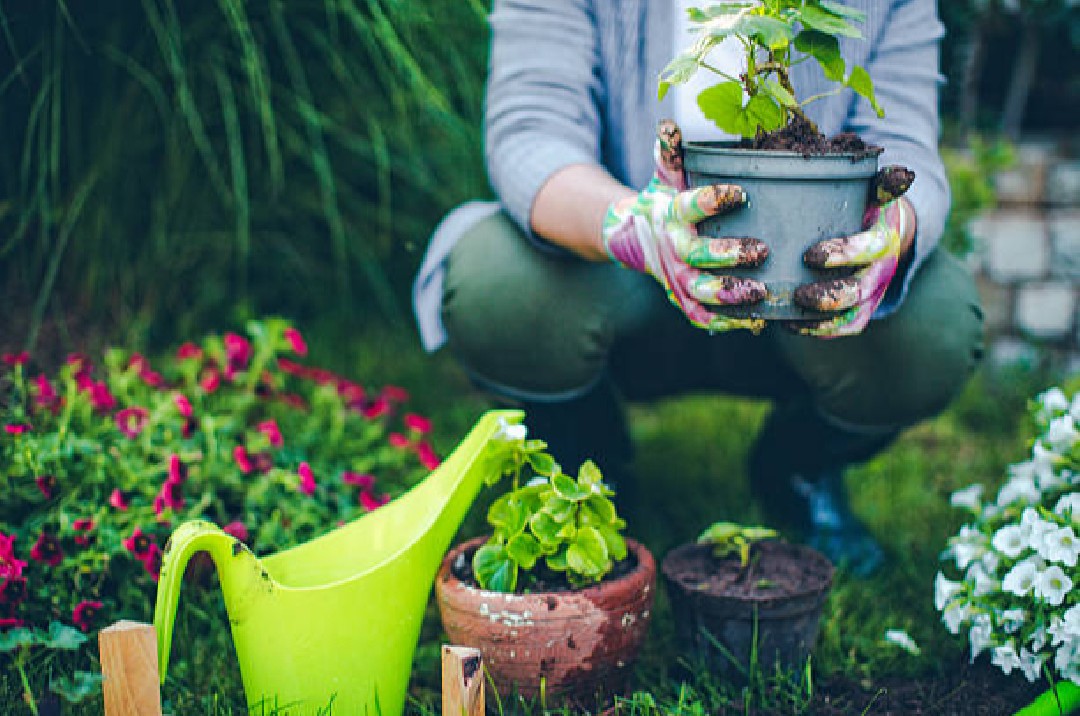How to Make Organic Fertilizer from Household Waste: Economical and Environmentally Friendly Solution

Making organic fertilizer from household waste is a smart step and will be useful for reducing household waste and enriching the soil. Organic waste such as vegetable scraps, fruit peels and dry leaves, which are often thrown away, actually contain nutrients that are beneficial for plants. By processing this waste into organic fertilizer, we not only help reduce waste, but can also save costs on caring for plants at home.

Why Use Organic Fertilizer?
Maybe many of you are asking why we have to use organic fertilizer. Organic fertilizer offers various benefits, both for plants and the environment, including:
- Reducing Household Waste: Turning food scraps into compost can reduce the volume of waste that ends up in landfills.
- Adds Soil Nutrients: Organic fertilizer improves soil structure, increases fertility, and increases the soil's ability to store water.
- Reducing the Use of Chemical Fertilizers: By using natural fertilizers, we can reduce dependence on chemical fertilizers which can damage the soil in the long term.
- Eco-Friendly and Cost-Effective: Making your own fertilizer at home is an economical way to keep plants fertile without excessive costs.
Types of Organic Waste that Can Be Used as Fertilizer
Please note that not all household waste is suitable for composting. The following are several types of organic waste that are good for compost:
- Vegetable and Fruit Leftovers: Such as fruit peels, vegetable scraps.
- Dried Leaves and Grass: Dried leaves and grass clippings can increase the carbon content of compost.
- Egg Shells: Egg shells contain calcium which is good for enriching the soil.
- Colored Inkless Paper: Paper that has not been exposed to ink or chemicals can help break down compost better.
- Coffee and Tea Grounds: A good source of nitrogen and can add nutrients to compost.
Required Tools and Materials

We need tools and materials to make organic fertilizer. The following are the tools and materials that will be needed to make organic fertilizer:
- Compost container or bin (can use a bucket or plastic barrel with holes)Sampah organik (potongan sayuran, buah, daun kering, dll.)
- Soil or finished compost (as a starter for decomposing bacteria)Small shovel
- Enough water
- Close the container or cloth cover (to avoid odors and pests)
These tools and materials will probably be found around you because these tools and materials are very common to find around us.
Steps to Make Organic Fertilizer from Household Waste

-
Prepare a Compost Container
Use a container that is large enough and adjust it to your needs, such as an old bucket or plastic barrel. Before use, make sure the container has a hole in the bottom or side which will later be useful as ventilation so that air circulation remains good and the composting process can run smoothly.
-
Collect Organic Waste
Once you have the container, collect organic waste which you will later make into compost. Separate wet waste such as vegetable scraps and fruit peels from dry waste such as leaves or pieces of paper. A balanced mixture of wet and dry ingredients will speed up the composting process.
-
Create Layers Inside the Container
Start by making a layer of soil at the bottom of the container where you make compost, this is useful for helping the decomposition process. Next, add a layer of dry waste, followed by wet waste. Repeat these layers until the container is almost full.
-
Add Soil or Compost Starter
Sprinkle a little soil or finished compost into the container every few layers. This soil contains natural microorganisms which can speed up the process of decomposing organic waste.
-
Maintain Humidity
Spray a little water into the container every few days to keep the compost moist. Media that is too dry will slow down the composting process, while media that is too wet can cause rot and unpleasant odors. Make sure the compost has enough moisture, like a squeezed sponge.
-
Stir the Compost Periodically
To speed up the composting process and prevent odors, stir or turn the compost every one to two weeks. This process will help air circulation, speed up decomposition, and prevent unwanted odors from appearing.
-
Wait until the compost is ripe
The composting process usually takes 2-3 months depending on the conditions and materials used. You will know that the compost is ready when it has a neutral or earthy smell, a smooth texture, and a dark color.
How to Use Organic Fertilizer on Plants

After the organic fertilizer is cooked, you can immediately use it for plants. The following are several ways that can be used to use organic fertilizer from compost:
-
As a Mixed Planting Medium: Mix compost with potting soil before planting new seeds. This will enrich the soil nutrients and accelerate plant growth.
-
Spread Around Plants: Sprinkle a thin layer of compost around the base of plants to add nutrients periodically. The compost that was sprinkled earlier will begin to decompose slowly and absorb into the soil.
-
Fertilizer for ornamental plants or gardens: You can also use this compost for ornamental plants, vegetables or flowers in the garden. Make sure it's not too much because it can overload the plant with nutrients.
Tips for Successfully Managing Compost at Home

So that the composting process can run well, you must pay attention to the following tips:
-
Maintain a Balance of Wet and Dry Materials: The ratio between wet materials (vegetable scraps, fruit) and dry materials (leaves, paper) should be around 1:1 to maintain moisture and balance of nutrients in the compost.
-
Avoid Animal Waste: Avoid putting meat, bones, oil, or dairy products in the compost because it will attract pests and cause odors.
-
Use a Cover: Cover the compost container with a cloth or cover to prevent attracting flies and insects, and to maintain humidity.
-
Ensure Good Air Circulation: Make sure the compost bin has enough ventilation to keep oxygen in. Oxygen will help decomposing microorganisms work more efficiently.
Benefits of Organic Fertilizer for Plants

Organic fertilizer from compost has many benefits for plants:
-
Increases Soil Fertility: Compost can help increase the humus content in the soil, which makes it more fertile and able to absorb water better.
-
Supports Plant Health: Plants grown in compost-rich soil generally tend to be healthier, have strong roots, and are more resistant to pests and disease.
-
Reducing Environmental Impact: Using organic fertilizer from household waste can help to reduce waste and reduce dependence on chemical fertilizers which can usually damage the ecosystem.
-
Improving Soil Structure: Compost can also be useful to help improve the texture of the soil so that it is easier for plant roots to penetrate it and absorb the nutrients in the soil.
Conclusion
Making organic fertilizer from household waste is an easy, economical and beneficial way for plants and the environment. By following the steps above, you can create nutrient-rich fertilizer to enrich the soil and support plant growth at home. Not only that, you also contribute to protecting the environment by reducing organic waste. Good luck and I hope your plants grow well with the fertilizer you make yourself!








